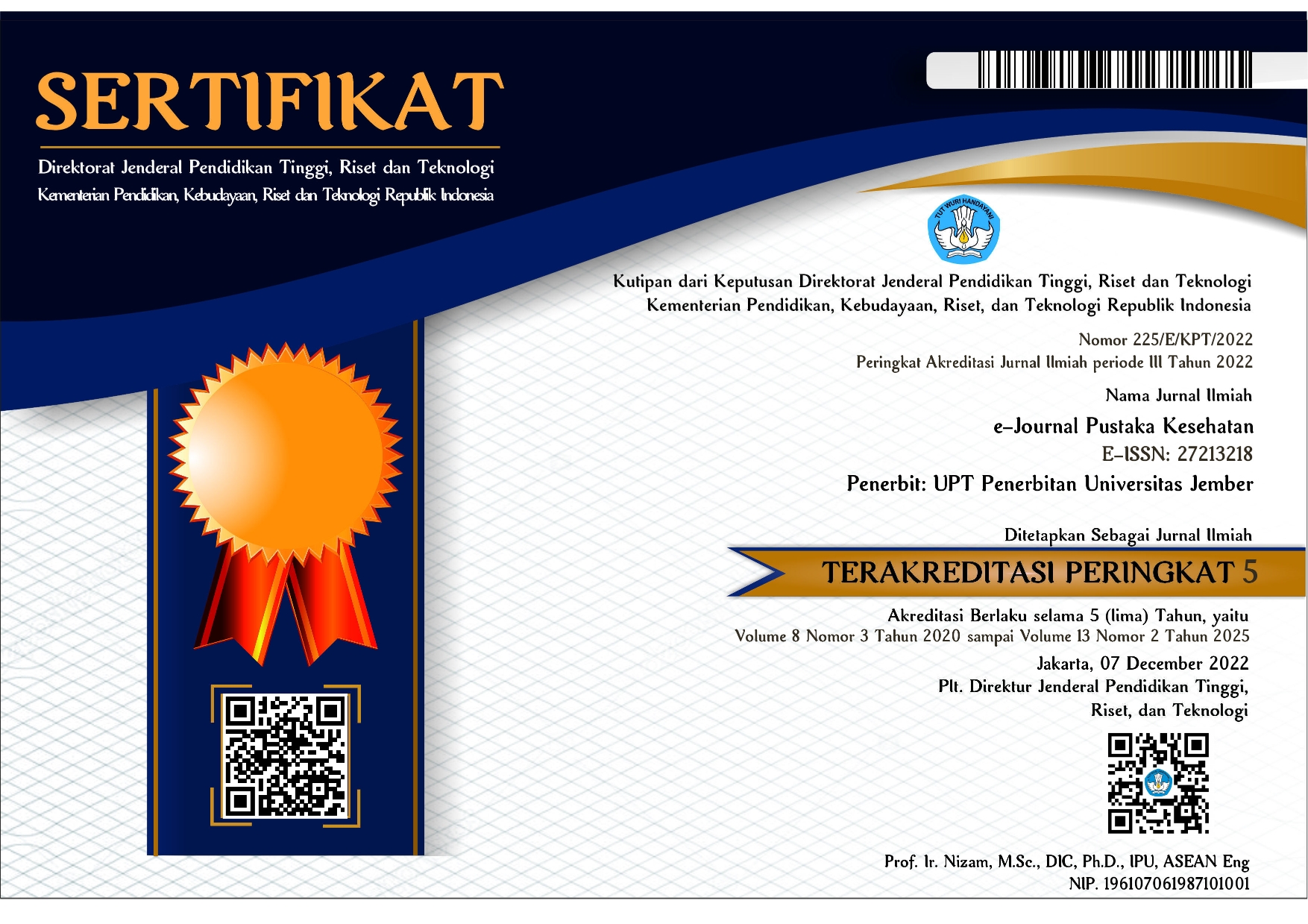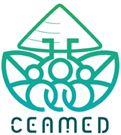Efek Ekstrak Air Kulit Buah Delima (Punica granatum L) terhadap Salmonella typhimurium secara In Vivo (The Effect of Pomegranate (Punica granatum L) Peel Aqueous Extract on Salmonella typhimurium In Vivo)
Abstract
Salmonella typhi infection is commonly treated by an antimicrobial agent such as levofloxacin. At the moment, herbal usage has risen as an alternative therapy. Pomegranate (Punica granatum L) is a commonly used herb which contains flavonoid as its major active compound. Aqueous extract of pomegranate peel had been known for its antimicrobial effect to S. typhi on in vitro study. The aim of this research was to investigate the activity of aqueous extract of pomegranate peel to S. typhimurium in vivo and find the antimicrobial effect of different concentrations. The study was conducted by using typhoid fever model in mice infected by S. typhimurium. Each mice was treated with aqueous pomegranate peel extract in three consentrations: 0,65 mg/ml, 1,3 mg/ml and 2,6 mg/ml for treatment groups and levofloxacin 1,3 mg/ml for positive control group. Ileum of each mice was isolated and cultured. The result of post hoc LSD test showed that negative control group significantly different with treatment group and the result of Pearson test showed p=0,000 and r = -0,865. In conclusion, aqueous extract of pomegranate peel had an antimicrobial activity on S. typhimurium in vivo where the higher extract concentration the lesser number of S. typhimurium colony.
Â
Keywords: Antimicrobial, Pomegranate, Salmonella typhimurium
Downloads
Downloads
Published
Issue
Section
License
e-Journal Pustaka Kesehatan has CC-BY-SA or an equivalent license as the optimal license for the publication, distribution, use, and reuse of scholarly work. Authors who publish with this journal retain copyright and grant the journal right of first publication with the work simultaneously licensed under a Creative Commons Attribution-ShareAlike 4.0 International License that allows others to share the work with an acknowledgment of the work's authorship and initial publication in this journal.







